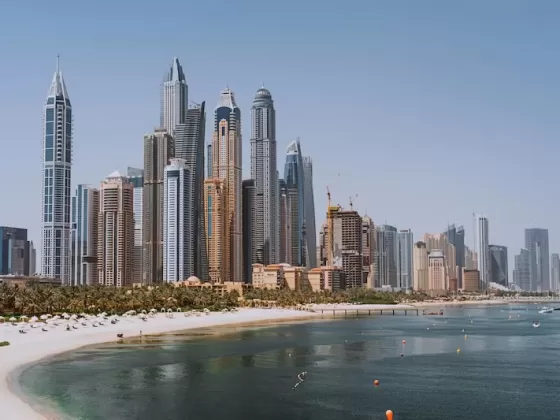As the world becomes more interconnected and globalized, the concept of second citizenship and foreign residency is gaining popularity.
The quest for second citizenship and foreign residency is not only a means to widen one’s horizons but also a strategic move to secure a better future for oneself and one’s family.
A growing number of individuals are recognizing the value of holding multiple passports or residence permits, as it offers increased freedom of travel, access to better healthcare and education systems, and diversified investment opportunities.
Moreover, by establishing residency in a foreign country, you may also benefit from tax optimization, political stability, and an enhanced quality of life.
In this post, we embark on an exciting journey to understand the importance of exploring second citizenship and foreign residency options, the personal and financial benefits that come with diversifying your citizenship and residency, and the steps you can take to achieve this global lifestyle.
Understanding Second Citizenship and Foreign Residency
Before we dive deeper into our exploration, it’s essential to define and distinguish between second citizenship and foreign residency.
Second citizenship refers to the legal status of being a citizen of more than one country, possessing two or more passports.
Foreign residency, on the other hand, involves obtaining the right to live in a country other than your own, without necessarily acquiring citizenship.
While second citizenship grants you the full rights and privileges of a native citizen, foreign residency allows you to reside, work, and access certain benefits within the host country, typically with some restrictions.
Reasons for seeking second citizenship and foreign residency
Individuals seek second citizenship or foreign residency for several reasons, some of which include:
- Freedom of travel: A second passport can grant you visa-free access to a more extensive range of countries, simplifying international travel and reducing bureaucracy.
- Economic opportunities: By diversifying your citizenship or residency, you may access new investment opportunities, offshore banking, job markets, and favorable tax regimes.
- Personal safety and political stability: Having a second citizenship or foreign residency provides a safety net in case of political unrest or natural disasters in your home country.
- Family considerations: Second citizenship or foreign residency may offer access to better healthcare, education, and overall quality of life for you and your family.
- Cultural exploration: Living in a foreign country allows you to experience new cultures, languages, and traditions, expanding your worldview and personal growth.
Legal aspects and requirements
When considering second citizenship or foreign residency, it is crucial to understand the legal aspects and requirements involved.
Each country has its unique set of rules and regulations governing these processes. Some countries may even have restrictions on dual citizenship, requiring you to renounce your original citizenship upon acquiring a new one.
It is essential to research and consult with immigration experts or legal professionals to ensure that you are fully aware of the legal implications of your decisions. Additionally, be prepared to meet certain requirements, such as proving your financial stability, providing a clean criminal record, and demonstrating a genuine connection to the country.
Top Countries for Second Citizenship and Foreign Residency
Finding the right country for second citizenship or foreign residency is a critical decision that requires careful consideration.
Here are some factors to keep in mind as you evaluate your options:
- Visa-free travel: Consider the countries your second passport or residency permit allows you to visit without a visa, and whether these destinations align with your travel goals.
- Taxation policies: Research the tax implications of obtaining a second citizenship or residency in your chosen country, including income tax, capital gains tax, and inheritance tax.
- Investment requirements: Assess the financial investment necessary for obtaining citizenship or residency, such as real estate purchases or government bonds.
- Ease of integration: Reflect on the cultural, linguistic, and social aspects of living in the country, and determine whether you can adapt to the local lifestyle.
- Safety and stability: Investigate the political and economic stability of your chosen destination, as well as the overall safety and quality of life it offers.
Brief overview of popular destinations plus pros and cons
Portugal
Known for its Golden Visa program, Portugal offers an attractive path to residency and eventual citizenship through real estate investment or job creation.
Pros: Relatively low investment requirements, high quality of life, and potential for EU citizenship.
Cons: Mandatory stay requirements, language barrier, and lengthy processing times.
Malta
With its Citizenship by Investment program, Malta provides a route to EU citizenship for those willing to make a significant financial contribution to the country.
Pros: Access to EU citizenship, excellent healthcare system, and a Mediterranean climate.
Cons: High investment requirements, limited visa-free travel compared to other EU countries, and a small island environment.
Canada
Praised for its high quality of life, Canada offers several immigration programs for skilled workers and entrepreneurs seeking residency and eventually citizenship.
Pros: Stable economy, excellent healthcare and education systems, and a welcoming culture.
Cons: Cold climate, stringent eligibility requirements, and high tax rates.
St. Kitts and Nevis
This Caribbean nation has a long-standing Citizenship by Investment program, attracting applicants with its beautiful beaches, low taxes, and visa-free travel.
Pros: Quick processing times, no residency requirements, and tax benefits.
Cons: Limited global recognition, fewer visa-free destinations, and a small island economy.
Spain
Spain’s Golden Visa program grants residency to investors who purchase real estate, allowing them to enjoy its rich culture and sunny climate.
Pros: Beautiful climate, rich culture, and relatively low investment thresholds.
Cons: Lengthy path to citizenship, mandatory stay requirements, and potential language barrier.
The Path to Second Citizenship
Citizenship by investment programs
Citizenship by investment (CBI) programs offer a direct route to second citizenship in exchange for a significant financial investment in the host country. This investment can take various forms, such as real estate purchases, government bonds, or donations to national development funds. Countries like Malta, St. Kitts and Nevis, and Dominica are known for their CBI programs. Research each program thoroughly, as the requirements and benefits may vary.
Citizenship by descent
Citizenship by descent allows you to claim second citizenship based on your ancestry. If you have a parent, grandparent, or sometimes even a great-grandparent from a country that recognizes citizenship by descent, you may be eligible to apply. Countries like Ireland, Italy, and Poland offer this option. Be prepared to provide extensive documentation to prove your lineage.
Citizenship by naturalization
Naturalization is the process of obtaining citizenship after residing in a country for a specific period, typically ranging from 3 to 10 years. During this time, you may need to meet certain requirements, such as language proficiency, employment, or a demonstration of good moral character. Countries like Canada, Australia, and Portugal offer citizenship through naturalization.
Citizenship through marriage
Marrying a citizen of another country may open the door to second citizenship, depending on the country’s laws. Some countries, like the United States and the United Kingdom, have provisions that allow foreign spouses to apply for citizenship after meeting residency and other requirements. Be aware that immigration authorities closely scrutinize such applications to prevent fraudulent marriages.
Establishing Foreign Residency
Foreign residency typically involves obtaining a residency permit or visa, which grants you the right to live and work in the host country.
Various types of permits and visas are tailored to specific situations, such as:
- Investment visas: These visas are issued to individuals who make significant investments in the host country, like Portugal’s Golden Visa or Spain’s Golden Visa.
- Skilled worker visas: These are designed for professionals with specific skills or qualifications in high demand, such as the H-1B visa in the United States or the Tier 2 visa in the United Kingdom.
- Entrepreneur visas: Entrepreneurs and business owners can apply for visas that allow them to establish or invest in a business in the host country, like the Start-up Visa in Canada or the Innovator Visa in the UK.
- Student visas: International students attending educational institutions in the host country may apply for student visas, which sometimes offer a path to residency after graduation.
- Retirement visas: Some countries, like Costa Rica and Thailand, offer residency options for retirees who can demonstrate a stable income or pension.
Temporary vs. permanent residency
Temporary residency permits usually have a fixed duration and may require renewal or extension after a certain period.
On the other hand, permanent residency grants you indefinite leave to remain in the host country, often with a path to citizenship.
Countries may offer both temporary and permanent options, depending on factors like investment amount, duration of stay, and the applicant’s qualifications.
Concluding thoughts and recommendations
Throughout our exploration of second citizenship and foreign residency, we’ve discussed the importance of diversifying citizenship and residency, defined key terms, and examined various pathways to achieving this goal. We’ve also delved into popular destinations, weighed the pros and cons, and provided actionable advice to help you navigate the application process.
As you contemplate the possibilities of second citizenship and foreign residency, keep in mind the importance of thorough research, expert guidance, and patience throughout the process. Seek advice from professionals, such as immigration lawyers or consultants, and connect with others who have undertaken similar journeys. And most importantly, stay true to your goals and aspirations as you embark on this exciting adventure.
Second Citizenship and Residency Programs Webinar
In this insightful webinar, Joel Nagel, the world’s top international lawyer in the areas of second citizenship programs, asset protection, cross-border transactions, and global investment, and Michael Cobb, CEO and co-founder of ECI Development which has properties throughout Latin America, discuss ways to help you put a Foreign Residency and/or Second Citizenship in place. CLICK HERE to get your access now.










